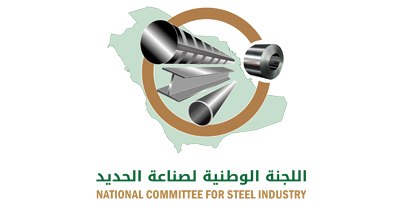
Importance of Quality in Steel Industry
Standardization, the best way of organizing economic relations.
– Florence Nicolas, Common Standards for Enterprises
The National Committee for Steel Industry has paid great attention to the quality of the national steel products, as one of the most important membership conditions at the committee is that the member must have a Saudi quality certificate or quality certificate from international organizations and bodies concerned with quality in the steel industry.
Steel industry is a strategic industry par excellence for the economy of any country in the world, one of the most important and largest industries in the world economy.
Most of the things and products around us contain steel, as they are used in all areas of our daily life, for example in metal processing, mechanical engineering, automotive manufacturing, building and construction, trains and airplanes, home appliances. Steel is therefore a very reliable material and guarantees the economic success of any country.
Quality Marks Accreditation Bodies


Saudi Standards, Metrology and Quality Org. (SASO)
www.saso.gov.sa
The Saudi Arabian Standards Organization, set up in 1972 (1392 AH), has responsibility for determining and enforcing approved standards of services, facilities, utilities, and products within the Kingdom of Saudi Arabia.


Emirates Authority For Standardization and Metrology
www.saso.gov.sa
The ESMA was established as the sole standardization body in the United Arab Emirates (UAE) under Law No. 28/2001. The board of directors chaired by H.E. Dr. Rashid Ahmed Bin Fahad, the Minister of Environment and Water in the UAE, comprises representatives of the main parties involved in standardization in the UAE. The board is responsible for laying down policies and adopting all of the procedures necessary to ensure the efficient performance of assignments


Kuwait Public Authority for Industry
www.pai.gov.kw
Standardization activities in Kuwait began in 1967, within a unit of the Ministry of commerce & Industry which became a Department after the law no. 128 for standardization was issued in 1977. The Department was transferred to the Public Authority for Industry in 1996 and became a sector for Standards and Industrial services including two Departments, one for standards & Metrology and the other for quality laboratories.


Jordan Standards and Metrology Organization (JSMO)
www.jsmo.gov.jo
The JSMO was established as a public organization with financial and administrative autonomy in accordance with the Standards and Metrology Law No. 15 for 1994, amended in accordance with Law No. 22 for 2000. Prior to that, the organization had been one of the directorates in the Ministry of Industry and Trade.


Oman Academic Accreditation Authority (OAAA)
www.oaaa.gov.om
The OAAA is an entity with legal status and financial and administrative independence, which reports to the Education Council. The OAAA was established to continue the efforts initiated by the OAC in the dissemination of a quality culture and accreditation of institutions and their programs. This is in order to enable Omani graduates to compete in the job market, and to contribute effectively to the sustainable development of the country.


Abu Dhabi Quality and Conformity Council
www.qcc.abudhabi.ae
Abu Dhabi Quality and Conformity Council is looking forward to establish a safe market with spirit of competition.We also allow you to purchase certified items that carries performance and safety certificates which are issued by Specialized Conformity Assessment Bodies. And our services is extended to consumer safety continuously to cover more areas of your interest.


GCC Standardization Organization
www.gso.org.sa
The GCC Standardization Organization (GSO) is a regional body established by the Supreme Council of the Gulf Cooperation Council (GCC) at its 22nd session (Muscat, 30-31 December 2001) and started operations in May 2004 and is based in Riyadh, Saudi Arabia.
It’s members are seven member states: the six Gulf Cooperation Council (UAE, Bahrain, Saudi Arabia, Sultanate of Oman, State of Qatar and Kuwait), as well as the Republic of Yemen, which joined in January 2010.
The Authority aims to standardize the various standardization activities and follow up on their implementation and compliance, in cooperation and coordination with the national standardization bodies of the member states to raise the efficiency and competitiveness of the Gulf industries and develop their production and service sectors, thus facilitating trade exchange, consumer protection, environment and public health.